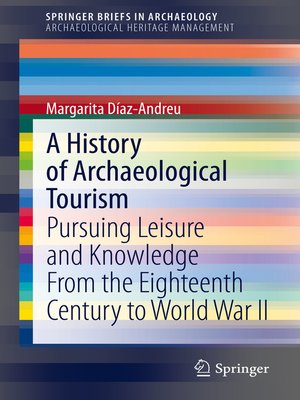A History of Archaeological Tourism
ebook ∣ Pursuing leisure and knowledge from the eighteenth century to World War II · SpringerBriefs in Archaeology
By Margarita Díaz-Andreu

Sign up to save your library
With an OverDrive account, you can save your favorite libraries for at-a-glance information about availability. Find out more about OverDrive accounts.
Find this title in Libby, the library reading app by OverDrive.



Search for a digital library with this title
Title found at these libraries:
| Library Name | Distance |
|---|---|
| Loading... |
This book examines the relationship between archaeological tourism and professional archaeology. To do so, it explores the connection – most visibly through nationalism and global capitalism - from its origins in the early modern period to World War II. How separate is the development of archaeological tourism from that of the formation of archaeology as a discipline? And do the fields operate in two different worlds? Scholarly discussions have largely treated them as distinct fields with no connection, while histories of archaeology, in particular, have focused on aspects such as the history of archaeological discoveries, archaeological thought and, more recently, the political relationship between archaeology and nationalism and other ideologies. Largely missing from all these accounts has been an examination of how archaeology has been incorporated into society, for example through something that all humans enjoy – leisure – in the form of archaeological tourism. Moreover, just as histories of archaeology have largely ignored the connection between archaeology and tourism, so too has tourism in the reverse direction. Recent studies on tourism have centered on topics such as economy (sustainable and recession tourism) and new types of tourism (including ecotourism and medical tourism).







